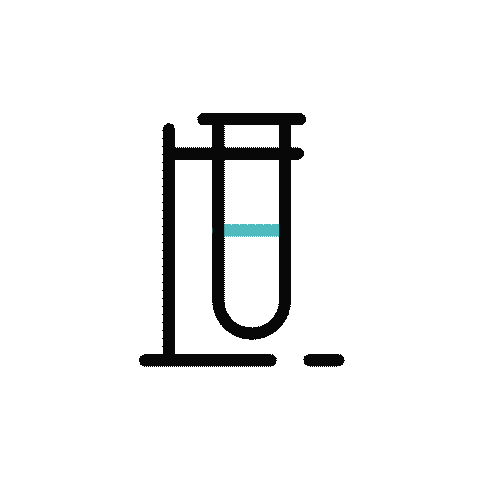Sputum Test - Culture and Sensitivity
Book the Sputum Culture & Sensitivity Test with Max@Home to identify respiratory infections like pneumonia and tuberculosis.
₹1180

Report Time
3 Days No Fasting Required
No Fasting Required

FREE
Home Sample Collection

Age Group
All Age Group

Parameters Included
1

Recomended for
Both
Get a CALLBACK from our
Health Advisor
Sputum Test - Culture and Sensitivity
Book the Sputum Culture & Sensitivity Test with Max@Home to identify respiratory infections like pneumonia and tuberculosis.

No Fasting Required

Report Time
3 Days
₹1180
Get a CALLBACK from our
Health Advisor

Understanding the Test

Test Measures

City Price Info
FAQs
Understanding the Sputum Test - Culture and Sensitivity
Sputum Test - Culture and Sensitivity Measures
Sputum Test - Culture and Sensitivity price for other cities
What Is a Sputum Culture and Sensitivity Test?
A Sputum Culture and Sensitivity Test is the process of obtaining a sample of sputum (lung mucus) and having it analyzed in a lab to see if there are any infectious microorganisms present in it. The test has two primary elements:
- Culture: The sputum sample is cultured in a growth medium to encourage the growth of bacteria or fungi. This identifies the particular pathogen which is responsible for the infection.
- Sensitivity (Susceptibility) Testing: After the pathogen has been identified, it is tested against different antibiotics to see which drugs are best at preventing its growth.
This holistic method makes the prescribed antibiotics more specific and effective, lowering drug resistance and speeding up recovery.
When Is the Sputum Culture and Sensitivity Test Ordered?
Your health care professional may order a Sputum Culture and Sensitivity Test if you have symptoms of an infection of the lower respiratory tract, including:
- Cough with sputum that recurs
- Fever and shivering
- Trouble breathing
- Chest pain that worsens with coughing or deep breathing
- Fatigue
- Confusion, especially among older patients
The test is especially handy in the diagnosis of diseases such as pneumonia, bronchitis, tuberculosis, and chronic obstructive pulmonary disease (COPD) exacerbations. It is also used to monitor the efficacy of chronic respiratory illnesses being continually treated.
How Is the Sputum Culture and Sensitivity Test Conducted?
Sample Collection:
- Preparation of the patient: You may be required to rinse your mouth with water to minimize oral bacterial contamination.
- Sample collection: You may be asked to breathe deeply and cough multiple times consecutively to yield sputum from the lungs, which will be placed into a sterile sample container.
- Help: Otherwise, if a good sample cannot be elicited, saline mist inhalation can induce a cough. In certain situations, a bronchoscopy would be done to yield the sample from inside the lungs themselves.
Laboratory Analysis:
- The sputum sample is cultured in controlled conditions to favor the growth of any microorganisms that are present.
- After there is good growth, the pathogens are identified by microscopic findings and biochemical analysis.
- Sensitivity testing involves growing the pathogens with a number of different antibiotics to identify the best treatment regimens.
Interpreting the Results
Culture Results:
- Negative Result: Lack of growth of pathogenic bacteria or fungi, indicating lack of a bacterial or fungal infection.
- Positive Finding: Increase in some pathogens, which shows an active infection. The common pathogens include Streptococcus pneumoniae, Haemophilus influenzae, Mycobacterium tuberculosis, and most fungi species.
Sensitivity Results
- Susceptible (S): The pathogen would likely be inhibited by the antibiotic with normal dosing.
- Intermediate (I): The pathogen may be inhibited by the antibiotic if given at higher doses.
- Resistant (R): The pathogen is not inhibited by the antibiotic, showing that the drug would be ineffective.
These findings assist medical practitioners in choosing the appropriate antibiotic treatment, allowing for effective control and minimising the development of resistance.
Significance of the Sputum Culture and Sensitivity Test
Sputum Culture and Sensitivity Test is important in the following ways:
- Proper Diagnosis: Determination of the specific pathogen responsible for causing respiratory infections.
- Specific Treatment: Choice of the right antibiotics based on the pathogen's susceptibility.
- Tracking Treatment Efficiency: Determining the effectiveness of available treatments.
- Prevention of Complications: Early treatment and detection of infections prevent complications and disease transmission.
Related Tests
Depending on your symptoms and medical history, your doctor may order other tests in addition to the Sputum Culture and Sensitivity Test:
- Chest X-ray: To monitor lung abnormalities.
- Complete Blood Count (CBC): To identify overall health and infection.
- Tuberculin Skin Test (TST): Tuberculosis screening.
- Blood Cultures: To identify whether the infection has spread to the blood.
Sputum Culture and Sensitivity Test is an important diagnostic aid in the diagnosis of respiratory infections and in the planning of the appropriate treatment regimen. Through the identification of the etiologic pathogen and its antibiotic susceptibility, clinicians can provide specific therapy, which will result in improved patient outcomes.
At MaxAtHome, convenience and your well-being are everything to us, so we brought you this critical test right from the comfort of your own space. Our professional technicians guarantee accurate sample collection and quick results, allowing you to get in control of your breathing wellness.

Read More
Frequently Asked Questions
Frequently Booked Together
CBC (Complete Blood Count) Test
High Sensitivity CRP (hs-CRP) Test
LIVER FUNCTION TEST (LFT) Test
Quantiferon TB-Gold
Compare Packages
You've selected items to compare.
Packages including Sputum Test - Culture and Sensitivity
View All

Health Blog
View AllSputum Test - Culture and Sensitivity in Other Cities
Other Popular Test
- • Triglycerides Test
- • HBsAg Test (Hepatitis B Surface Antigen)
- • Prolactin (PRL) Test
- • Alkaline Phosphatase Test
- • Apolipoprotein A1 and B Test
- • Food Allergy Test
- • Activated Partial Thromboplastin Time Test (APTT)
- • Vitamin D Test
- • Creatine Phosphokinase (CPK) Test
- • Allergy Screening: Phadiatop Test
- • PSA Test - Total Prostate Specific Antigen
- • Creatinine Test

























